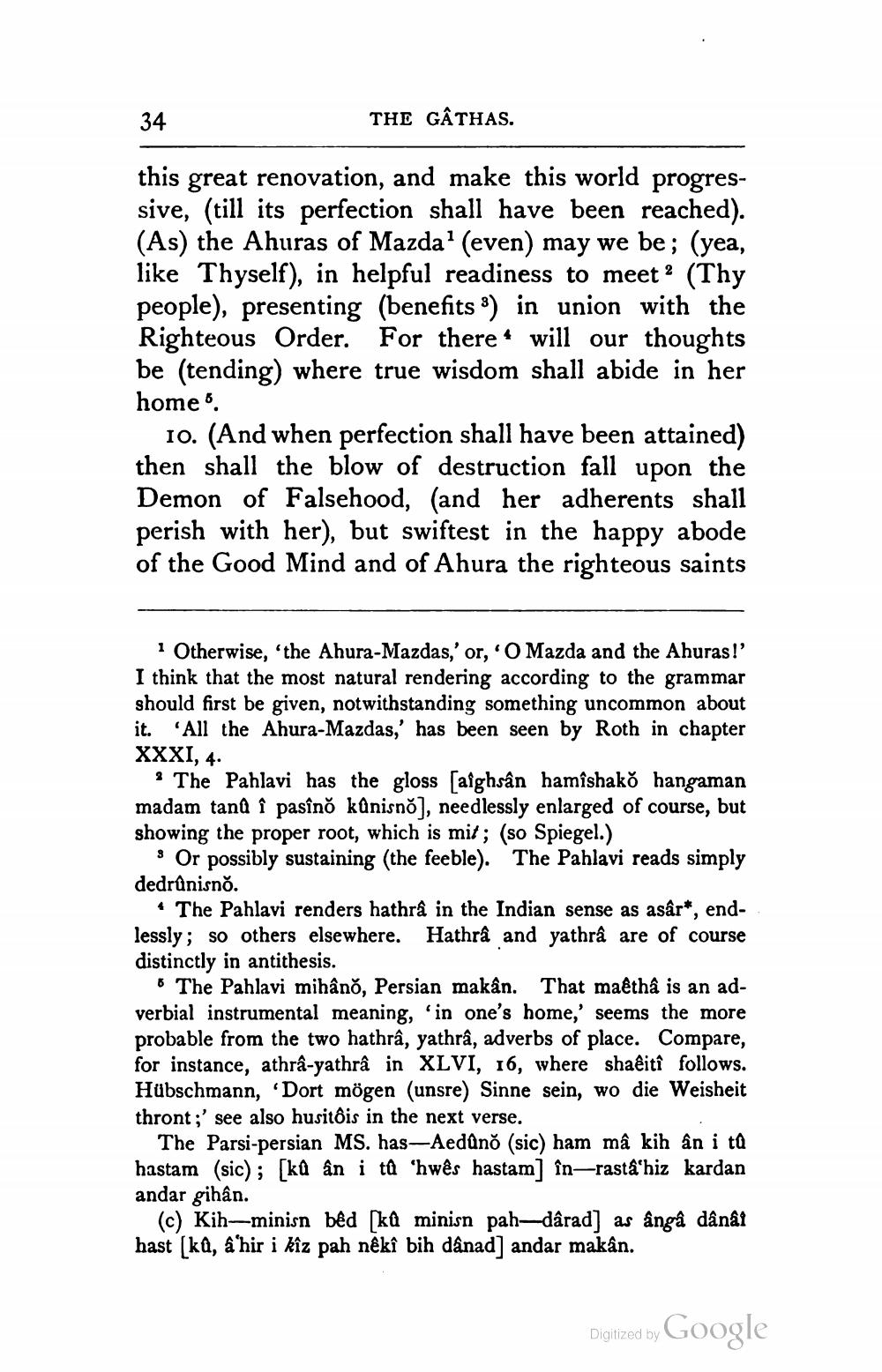________________
34
THE GÂTHAS.
this great renovation, and make this world progressive, (till its perfection shall have been reached). (As) the Ahuras of Mazda' (even) may we be; (yea, like Thyself), in helpful readiness to meet? (Thy people), presenting (benefits 3) in union with the Righteous Order. For there 4 will our thoughts be (tending) where true wisdom shall abide in her home.
10. (And when perfection shall have been attained) then shall the blow of destruction fall upon the Demon of Falsehood, and her adherents shall perish with her), but swiftest in the happy abode of the Good Mind and of Ahura the righteous saints
1 Otherwise, 'the Ahura-Mazdas,' or, O Mazda and the Ahuras!' I think that the most natural rendering according to the grammar should first be given, notwithstanding something uncommon about it. All the Ahura-Mazdas,' has been seen by Roth in chapter XXXI, 4.
3 The Pahlavi has the gloss [aighsân hamishako hangaman madam tand î pasîno kūnisno), needlessly enlarged of course, but showing the proper root, which is mit; (so Spiegel.)
Or possibly sustaining (the feeble). The Pahlavi reads simply dedrûnisno.
4 The Pahlavi renders hathra in the Indian sense as asar*, endlessly; so others elsewhere. Hathrâ and yathrâ are of course distinctly in antithesis.
o The Pahlavi mihâno, Persian makân. That maêtha is an adverbial instrumental meaning, 'in one's home,' seems the more probable from the two hathra, yathrâ, adverbs of place. Compare, for instance, athra-yathrâ in XLVI, 16, where shaêitî follows. Hübschmann, Dort mögen (unsre) Sinne sein, wo die Weisheit thront;' see also husit is in the next verse.
The Parsi-persian MS. has-Aedūno (sic) ham mâ kih ân i ta hastam (sic); [ků an i tû 'hwês hastam] în-rasta hiz kardan andar gihân.
inisn bêd [kû minisn pah-dârad] as ângâ dânât hast (ka, â'hir i kîz pah nēkî bih dânad] andar makan.
Digitized by
Digitized by Google




